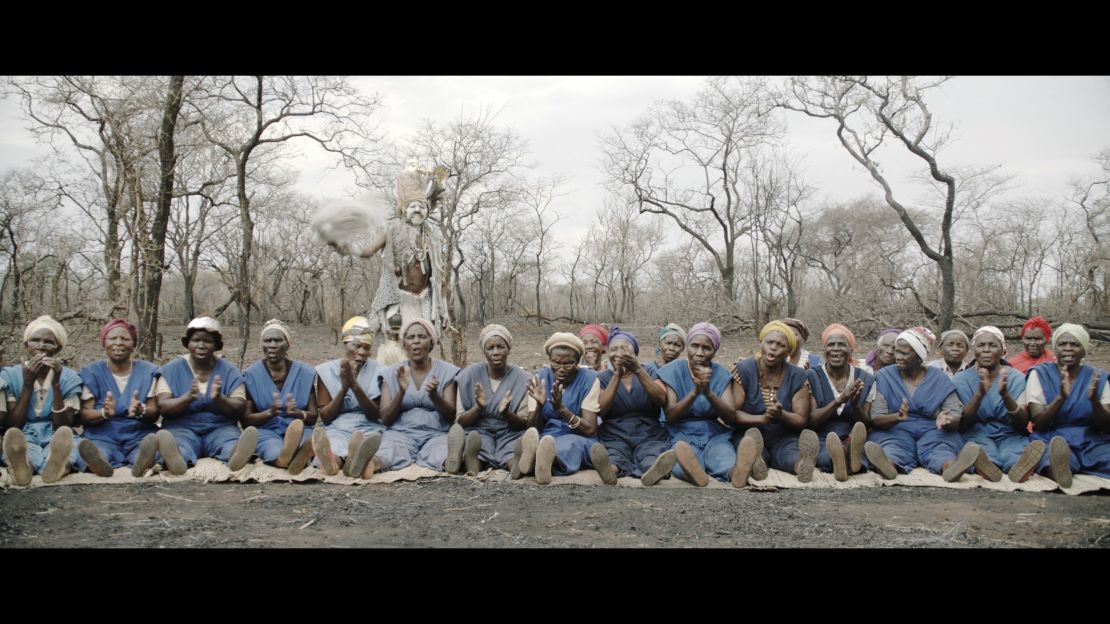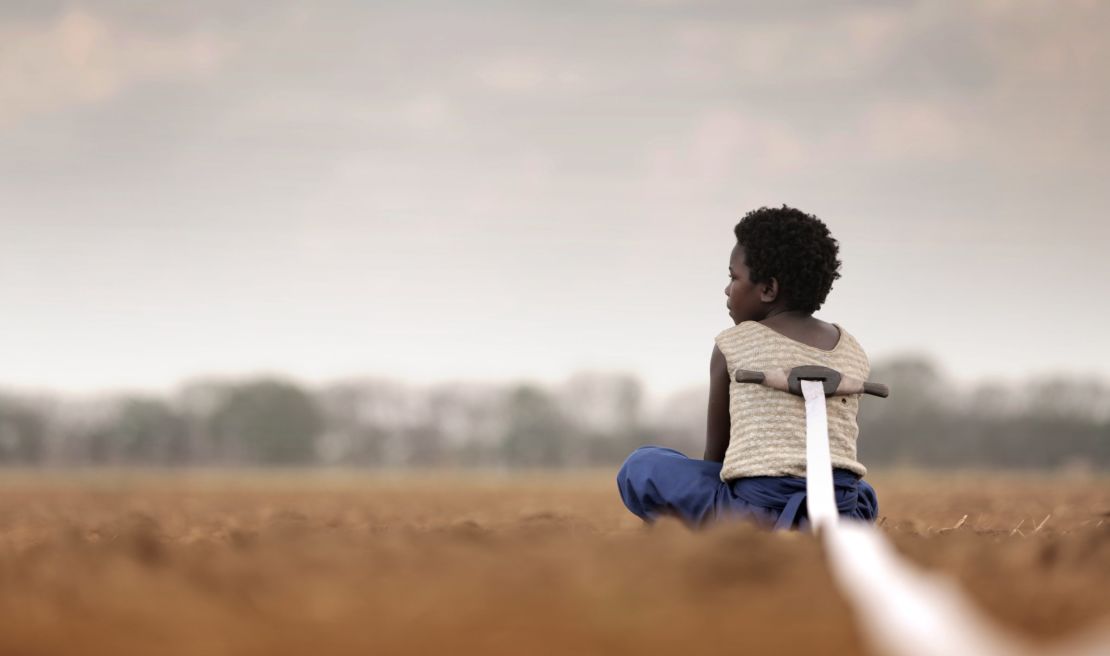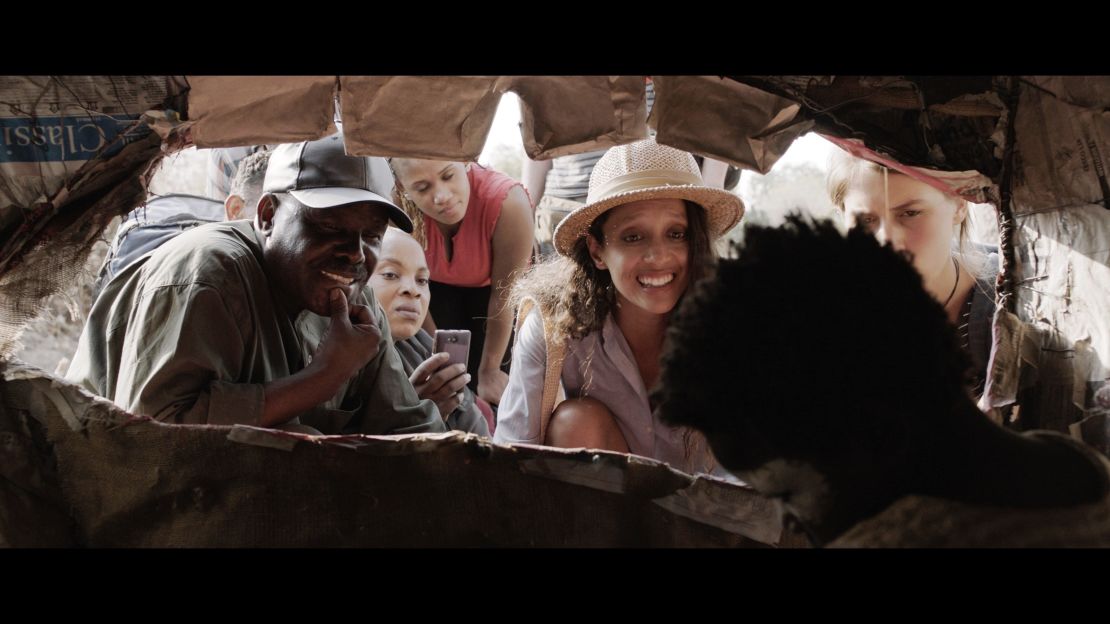“When I die I will kill you,” says an irked woman in one scene from “I Am Not a Witch.”
This elderly lady, accused of witchcraft in Zambia, has reached her wits’ end with a farmer who’s forced her to work his fields. Tired and exploited, she vows to exercise her powers from beyond the grave – and she’s being quite literal.
The line sums up the absurd, paradoxical world of witchcraft. When you’ve been told you’re a witch, forced to live as a witch, forced to act as a witch, you might eventually start believing you’re a witch.
Zambian-born, Welsh-raised director Rungano Nyoni has made the subject the focus of her debut feature film which screened this month at the Cannes Film Festival. A biting satire attacking the ignorance which provides oxygen for this hokum – and the tragedy that can result from it – the BAFTA nominee and Cinefondation alumni is not pulling her punches.
But can this member of the diaspora change hearts and minds in Zambia?
A month as a witch
Accusing someone of witchcraft is illegal in Zambia. Under the country’s Witchcraft Act the charge is punishable by up to one year’s imprisonment, with or without hard labor. However, that doesn’t mean accusations don’t happen.
In Nyoni’s film we follow Shula (Maggie Mulubwa), a reticent 9-year-old accused after a woman drops a pail of water and turns around to find the child looking at her. Dragged to a police station, a man then claims the waif chopped off his arm with an ax. Conspicuously, the accuser still has both limbs. “She did it in a dream,” he doubles back. Locals nod their heads and mutter in approval.

Despite the flimsy charges, Shula finds herself in state custody and transported to a rural witch camp by unscrupulous police chief Mr. Banda (Henry B.J. Phiri). There she’s left to live among a group of so-called witches, presided over by a witch doctor. Each is attached to a spool of white ribbon lest they fly away. Cut the ribbon and you’ll be turned into a goat, Shula is warned.
The ribbon, rich in symbolism, is a fictional touch from Nyoni, but many other elements are true to her research.

“I went to Ghana for a month and stayed in a witch camp,” she said, recalling the 10-hour drive from Accra. “I think it was about 200 years old and I was the first foreigner to stay there. I’d been reading a lot of third-hand information, but I thought it was important that I go and see it for myself.”
“I interviewed the women, once we got to know each other a bit, to find out why they were accused,” she said. Most were elderly. They’d become a burden to their families, or were cast off by their spouses, deemed eccentric or outspoken. Witchcraft was a convenient way to remove them from society.
The camp fulfilled the dual role of protecting locals from witches, and witches from locals.
“In the witch camp that I was in they had an ‘invisible shrine’. Only a witch doctor could see the shrine – naturally, he was a man,” Nyoni remembered with a wry smile. “It stops the witches from flying or committing evil. It was a way for the community to feel protected, so the women don’t get attacked there.”
“It’s sad, and I think it’s a form of misogyny which can be executed by other women and men,” she added. The accused find themselves trapped in a Kafkaesque net, where every action and every answer merely confirm their status. “Don’t be fooled by these witches, they can be very cunning and deceiving,” says Nyoni’s police chief in the film.
Unwanted and vulnerable, “witches” often have no choice but to embrace the identity foisted upon them to survive. The choice is either a life of safe subjugation, or escape and risk vigilante attacks.

That being said, despite being labeled social pariahs, many Zambians in Nyoni’s film rely on witches.
Shula is used as an oracle, forced to choose from a line of suspected thieves in lieu of a criminal investigation. Another time she’s asked by a farmer to bring rain. Her exploitation is laid bare when a tour guide arrives at the witch camp with gawping holidaymakers in tow. “Would a selfie make you happy?” one of them asks the distraught child.
Sadly, this turns out not to be the nadir for poor Shula. Among the parched landscapes of Lusaka, shot with the unflinching eye of cinematographer David Gallego (“Embrace Of The Serpent”), it seems inevitable that disaster awaits.
‘It needs to change’
Mulubwa’s assured performance has drawn praise from critics. But for a series of fortunate events, the young actress might have remained undiscovered.
The film’s location manager (also Nyoni’s husband) had taken a picture of Mulubwa while on a trip to Luapula Province in the north, a couple of months before pre-production. The director was smitten, but the crew had no way of contacting the girl. They didn’t even know her name.
“We found her through the local chief,” Nyoni explains. “He used to work for the national air force so he’s very regimented. They sent him a picture … and (he) sent out all these people to scour this huge area.”
“He WhatsApp-ed back ‘Is this her?’” with another picture. It was.

On set, the director says it took her a while to warm to her lead actress. “She was quite tense … really quiet and an introvert.” What Nyoni didn’t realize was the huge risk Mulubwa thought she was taking.
The actress had been warned by local villagers that Nyoni’s film wasn’t a film but an elaborate ruse – “‘it’s witchcraft,’” they said.
“When I filmed her I didn’t know that she’d been told we were going to eat her!” the director added, letting out a despairing laugh.
Nyoni has carried this idea through to her film. Satire seemed to be the most appropriate way to tackle a subject poised on a knife edge between tragedy and farce.
Underneath the humor there’s staunch determination from the director. “It’s so important that we’re not precious about (witchcraft), otherwise nothing gets done,” she said.
It’s clear Zambia’s Witchcraft Act is not a panacea. A quick browse through the Lusaka Times and you’ll find stories of mob justice; of former ministers accused of naming witches; of witchcraft closing schools. In February last year a magistrate bemoaned that “witchcraft is real and we cannot ignore it.”
“There’s some beautiful things about African culture, and there’s some things that we have to recognize are blatantly detrimental to a certain group of people,” argues the director.
“We can’t be PC (politically correct) about it,” she adds. “It needs to change.”
“I Am Not a Witch” screened as part of the Directors’ Fortnight sidebar at the Cannes Film Festival 2017.











